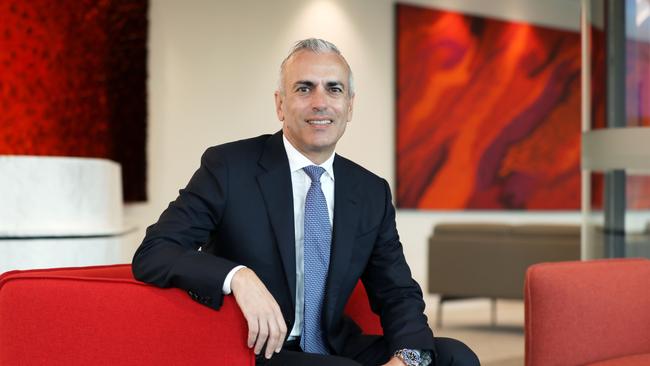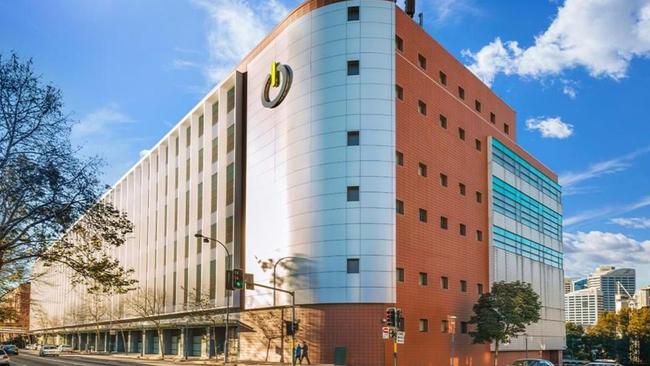HMC Capital hopes to float on AI tide as year’s biggest IPO launches
David Di Pilla’s funds house HMC Capital faces a key test with the launch of its DigiCo Infrastructure REIT on the Australian Stock Exchange on Friday.

David Di Pilla’s funds house HMC Capital faces a key test with the launch of its DigiCo Infrastructure REIT on the Australian Stock Exchange on Friday, as the performance of the $2.75bn vehicle is a pointer to whether its ambitions of growing to a $50bn empire over the next five years will be met.
The company has outlined aggressive plans to transform itself into the country’s premier alternative assets manager, with early comparisons to US private equity giant Blackstone being drawn – but only if it is able to bring investors along with it as it keeps up a frenetic pace of deal-making.
HMC has already listed shopping centre and medical property trusts, as well as forged into areas ranging from energy transition, private credit and stock market activism to orchestrating merger plays.
It will be floating a rapidly assembled collection of $4.2bn worth of data centres which span Australia and the US, billing their expansion potential in both markets at a time when the AI revolution is driving demand.
What has become a surprise end-of-year listing will also be a litmus test for the stickiness of the estimated $1bn of retail money that has underpinned the equity raising, alongside “friends and family” of HMC, and stock allocated to the vendors of some assets.
This has made for a tight register despite its overall size and should mean institutional buying, which is likely to help drive DigiCo’s inclusion in major indices by mid-next year.
However, some institutional players have pointed to features including HMC taking fees in units and financial engineering which has juiced up the yield.
Despite some scepticism in the real estate industry about the lofty metrics on which it will list, they remain optimistic about how it will trade.
“It has all the hallmarks of Guzman Y Gomez,” said one observer. “I think that retail is so strong and the theme is so hot it could easily trade OK.”
He added that the real question was how long DigiCo would trade before it entered major indices, driving further buying.
The float has already breathed life back into the market after a quiet year for listings.
Data centres are a hot theme with a number of major portfolios in play, which is underpinning the optimism behind DigiCo, the biggest ASX float since Viva Energy in 2018.
But just as with the Guzman Y Gomez float, there have been detractors.
Morningstar analyst Roy van Keulen said it was overpriced and the firm had set a fair value estimate for DigiCo at $3.40 per share.

“To reach a valuation near the $5 offer price, we need to assume the company will generate high rates of return, which we don’t think is likely or likely to persist given the competitive nature of the industry,” Mr van Keulen said.
“The company is riding a boom of investor excitement in the data centre space.
“HMC Capital created it following a rapid series of data centre acquisitions throughout 2024.
“However, despite the current strong demand for data centre services, data centres are a competitive industry.
“While rapid near-term demand growth can drive strong returns, in the long term, we think the barriers to adding new data centre supply are relatively low.
“We think industry returns will trend toward the cost of capital and do not see an economic moat in any of the traditional moat sources for data centres, such as network effects, switching costs, or scale-based cost advantages.”
Mr van Keulen said since OpenAI’s ChatGPT “exploded on to the scene” in late 2022, the AI boom had captured investors, propelling chip maker Nvidia and Microsoft – which has reportedly invested about $US13bn ($20m) in OpenAI – to dizzying heights, with the companies briefly overtaking Apple as the world’s most valuable.
Investor imaginations have been filled with the potential of generative artificial intelligence. Investors have described the potential in superlatives, with some even referring to generative AI as “creating God out of sand”. Investor sentiment for the theme is red hot.
In other deals, US private equity behemoth Blackstone acquired data centre operator AirTrunk for $24bn – eight times the value of when Macquarie bought into the business.
AirTrunk founder and chief executive Robin Khuda plans to elevate the company to a $100bn business, largely from the $1 trillion investment its biggest customers are making in AI.
For HMC, said another analyst, “it is all about believing in the story that they can do it”.
“This is probably the last chance they have because you’ve seen their other real estate investment trusts trade poorly. They need to make sure this REIT works.”



To join the conversation, please log in. Don't have an account? Register
Join the conversation, you are commenting as Logout